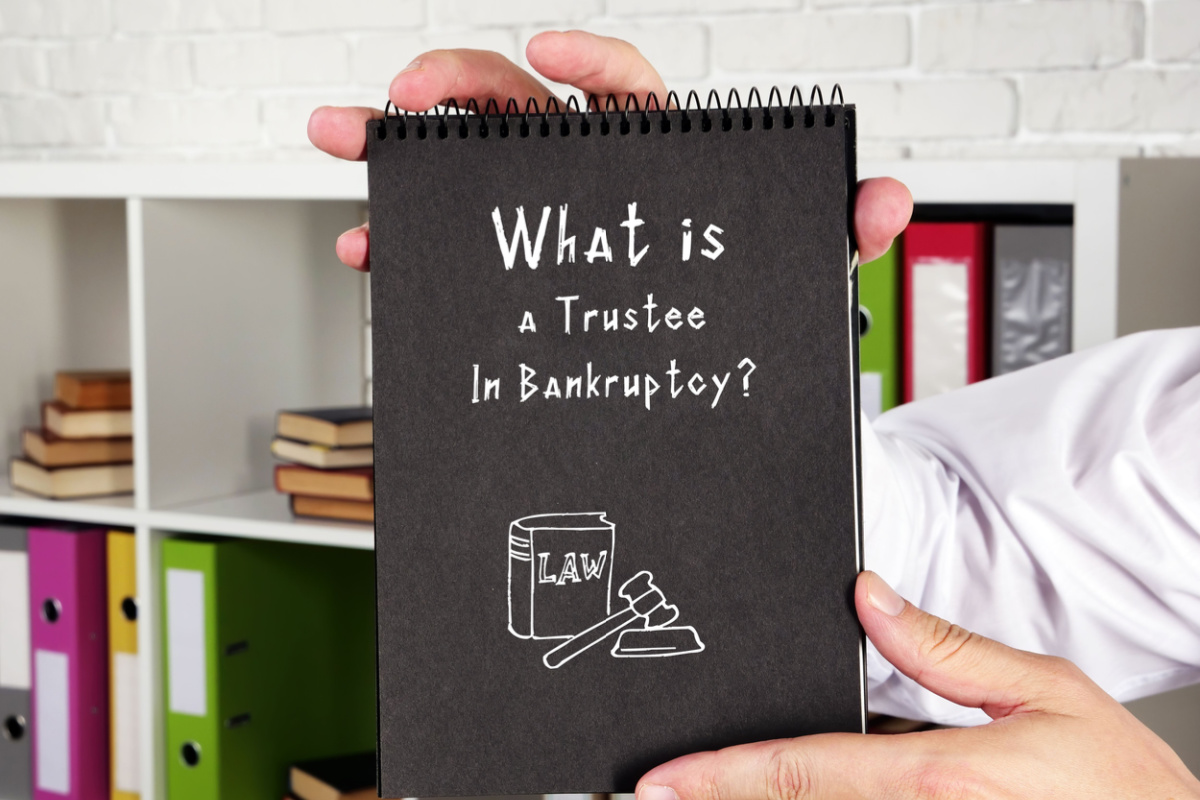





Attorney at Debt Advisors Law Offices
Practice Areas: Chapter 7 Bankruptcy, Chapter 13 Bankruptcy, Stop Foreclosure

Filing for bankruptcy can feel overwhelming, especially when legal terms and unfamiliar roles appear at every step. One of the most important figures in this process is the bankruptcy trustee. Trustees are appointed by the court to oversee the case, ensure accuracy in financial disclosures, and administer the repayment or liquidation process.
Understanding what a bankruptcy trustee does can help debtors feel more prepared and informed as they navigate Chapter 7 or Chapter 13 bankruptcy.
In Chapter 7 bankruptcy in Wisconsin, the trustee is responsible for managing the debtor’s non-exempt assets. These are items or property that are not protected by federal or state exemptions. The trustee inventories these assets, sells them, and then uses the proceeds to pay creditors according to federal law.
Another critical responsibility is verifying the debtor’s financial paperwork. Trustees carefully review all documents to confirm that income, expenses, debts, and property have been accurately reported. If assets were transferred to others shortly before filing, the trustee may investigate and, in some cases, recover those assets for the bankruptcy estate.
The trustee also leads the Meeting of Creditors, known as the 341 meeting. This is a mandatory meeting where creditors can ask the debtor questions about finances under oath. While many creditors do not attend, the trustee ensures the process is transparent and fair.
In Chapter 13 bankruptcy, the trustee takes on a different role. Rather than liquidating assets, the trustee oversees the debtor’s repayment plan. Once the plan is approved by the court, the debtor makes regular monthly payments to the trustee. The trustee then distributes those funds to creditors based on the plan’s terms.
Before approval, the trustee reviews the proposed plan to ensure it is feasible, fair, and in compliance with bankruptcy law. During the 341 meeting, the trustee questions the debtor to confirm the accuracy of the financial information and the viability of the repayment plan.
Throughout the three-to-five-year plan, the trustee monitors compliance. If a debtor misses payments or circumstances change, the trustee may recommend plan modifications to the court. This oversight ensures that both debtors and creditors are treated fairly throughout the repayment process.
Although the responsibilities vary between Chapter 7 and Chapter 13, trustees share several common duties. They review all creditor claims to determine validity, prevent fraudulent or inaccurate claims, and ensure funds are distributed according to the priority system established by federal law.
Trustees also protect the integrity of the bankruptcy system. By acting as impartial administrators, they ensure both debtors and creditors follow the rules. This includes confirming that debtors are transparent in their financial disclosures and that creditors are not making improper claims.
In both types of bankruptcy, trustees serve as officers of the court. Their actions must comply with the United States Bankruptcy Code and are subject to oversight by the U.S. Trustee Program.
The authority and duties of trustees are set out in federal law. Chapter 7 trustees operate under 11 U.S.C. §§ 701–704, while Chapter 13 trustees follow 11 U.S.C. §§ 1302–1307. These sections of the U.S. Bankruptcy Code outline their roles, from asset liquidation to repayment oversight.
Trustees are supervised by the U.S. Trustee Program, a division of the Department of Justice, which ensures consistency and accountability nationwide. More details can be found on the official U.S. Trustee Program website.
In Wisconsin, where Debt Advisors Law Offices operates, trustees follow the same federal framework, although the details of exemptions and procedures may vary slightly by district.

For many individuals in Wisconsin, working with a trustee can feel intimidating. Debtors are required to submit accurate paperwork, attend the 341 meeting, and comply with the trustee’s requests. While the trustee ensures fairness in the process, they are not an advocate for the debtor.
This is where legal guidance becomes important. A Milwaukee bankruptcy attorney can help explain trustee expectations, prepare the right documentation, and guide clients through meetings or repayment obligations. The trustee manages the case, but an attorney ensures the debtor’s rights and exemptions are fully protected.
The 341 meeting of creditors is the only formal opportunity for debtors to meet the trustee and answer questions under oath about their financial situation.
|
Duty/Function |
Chapter 7 Trustee |
Chapter 13 Trustee |
| Asset Management | Liquidates non-exempt assets | Oversees repayment plan (no liquidation) |
| Payment Distribution | Pays creditors from liquidation proceeds | Distributes debtor’s monthly payments |
| Meeting of Creditors (341) | Leads questioning of debtor | Leads questioning of debtor |
| Duration of Oversight | Short, until discharge | Long-term, three to five years |
| Fraud Investigation | May recover fraudulent transfers | Ensures honesty in repayment plan |
A trustee manages bankruptcy cases by liquidating assets or overseeing repayment plans while ensuring creditors are treated fairly and debtors comply with the law.
Yes. Every debtor must attend the 341 meeting of creditors where the trustee asks questions under oath about financial documents and repayment feasibility.
No. Bankruptcy exemptions under federal or state law protect certain assets, including some household items, vehicles, and retirement accounts, from being sold or liquidated.
Trustees are appointed by the U.S. Trustee Program under the Department of Justice and operate within the guidelines of the federal Bankruptcy Code.
If fraud is suspected, trustees may investigate, file objections, or pursue legal actions to recover assets or deny discharge of certain debts.
No. The trustee is a neutral administrator who represents neither the debtor nor creditors, but ensures the case follows bankruptcy law and procedures.
The bankruptcy trustee plays a central part in both Chapter 7 and Chapter 13 cases. Whether liquidating assets or overseeing a repayment plan, trustees ensure the process is transparent, lawful, and fair to all parties involved. Debtors who understand the trustee’s responsibilities are better equipped to navigate the process with confidence.
Bankruptcy is a complex legal matter, and while trustees are impartial administrators, having professional support makes a significant difference. If you are considering filing, speaking with a bankruptcy lawyer can help you prepare, understand exemptions, and avoid costly mistakes.
Debt Advisors Law Offices is a debt relief agency. We help people file for bankruptcy under the Bankruptcy Code. For those looking for clarity and support, our team offers a free consultation to discuss your options and guide you through the process.

Learn about bankruptcy protections, types of bankruptcy, how to get started, what to expect, and who to trust. Filing bankruptcy is the ONLY way to completely eliminate debt. If bankruptcy is right for you, it offers powerful protections that cannot be achieved through alternative solutions such as hardship relief, loans, or debt settlement.